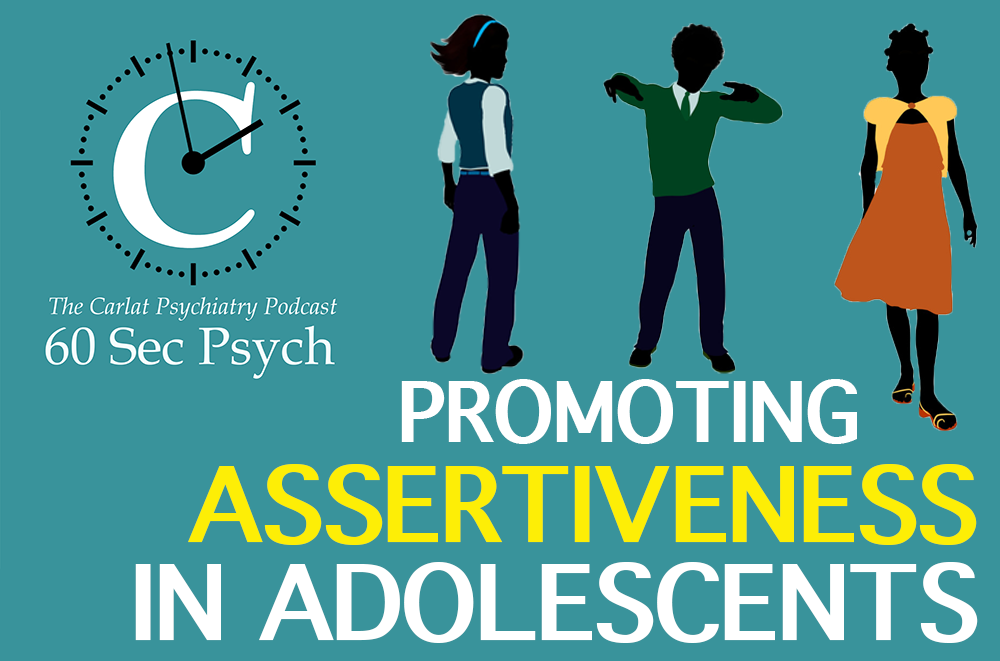Promoting Assertiveness in Adolescents [60 Sec Psych]
, Volume , Number ,
https://www.thecarlatreport.com/#
What can mental health clinicians do to help our patients who may be dealing with discrimination in their day-to-day lives? Assertiveness is a specific skill that we can model and teach our patients. A paper by Bhardwaj and Vishwas in the International Journal of Advanced Scientific Research underlines the importance of assertiveness in the development of adolescents. [Link]
Published On: 7/22/2020 Duration: 2 minutes, 23 seconds Transcript: Mara: Today on 60 Second Psych: Promoting Assertiveness in Adolescents, because when you speak up assertively you’re far more likely to stop bullying behavior. Josh: We talked about fighting implicit bias in health care professionals in a previous episode. But what can mental health clinicians do to help our patients who may be dealing with discrimination in their day-to-day lives? It may be a sensitive topic to bring up. A 2017 Medscape survey found that two thirds (69%) of psychiatrists identified as white or Caucasian. Black and brown patients might be wary of discussing discrimination with a white clinician. Similarly, a female patient might not want to hear advice from a male clinician about gender discrimination. At the same time, racism or descrimination are significant factors in mental health. A patient may bring up those experiences and ask for you advice on how to handle it. That’s where assertiveness comes in. This is a specific skill that we can model and teach our patients. A paper by Bhardwaj and Vishwas in the International Journal of Advanced Scientific Research underlines the importance of assertiveness in the development of adolescents. Assertiveness is about clearly communicating our needs with others. It’s that middle ground between being labelled aggressive or passive. Here’s an example. Your patient is in a social setting and a bully pushes them and uses racial slurs, they have some choices on how to react: A lot of kids hear the aggressive option from parents whose advice is to “Don’t come back here until you punch that bully in the face.” And kids often take the passive approach because it prevents conflict, but saying nothing can lead to internalized negative feelings. Clinicians can be an important influence in teaching patients about the assertive option, and modeling it in a clinical setting. Responding assertively promotes a healthy communication pattern in the individual. The benefits of that ability to communicate your feelings extend into academic and career success as well. Got feedback? Take the podcast survey.




Leave A Comment
You must be logged in to post a comment.